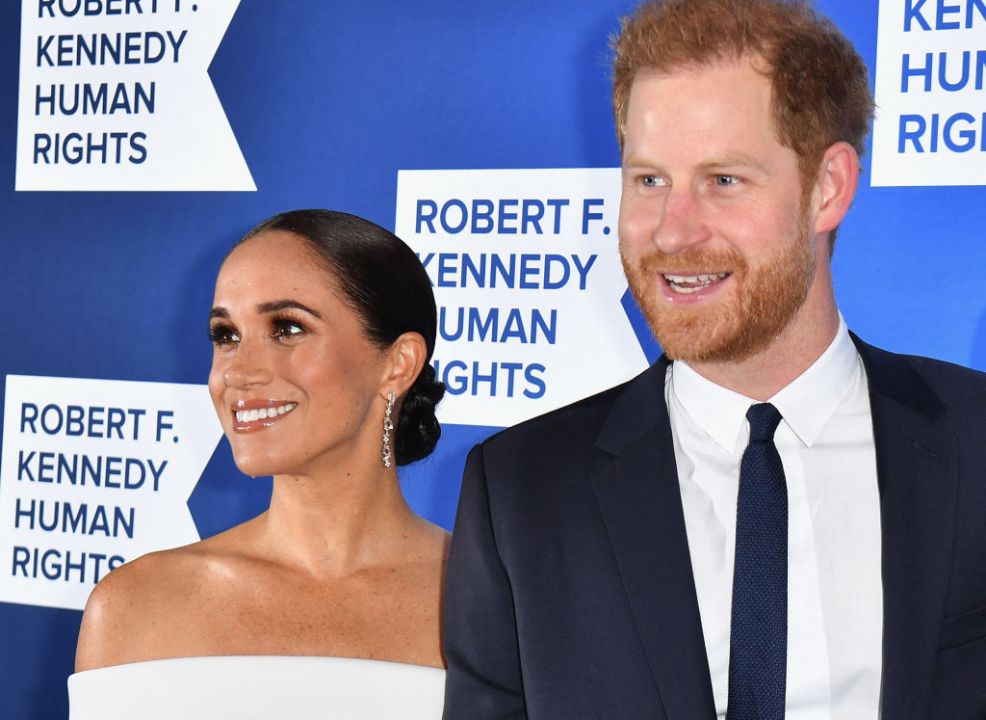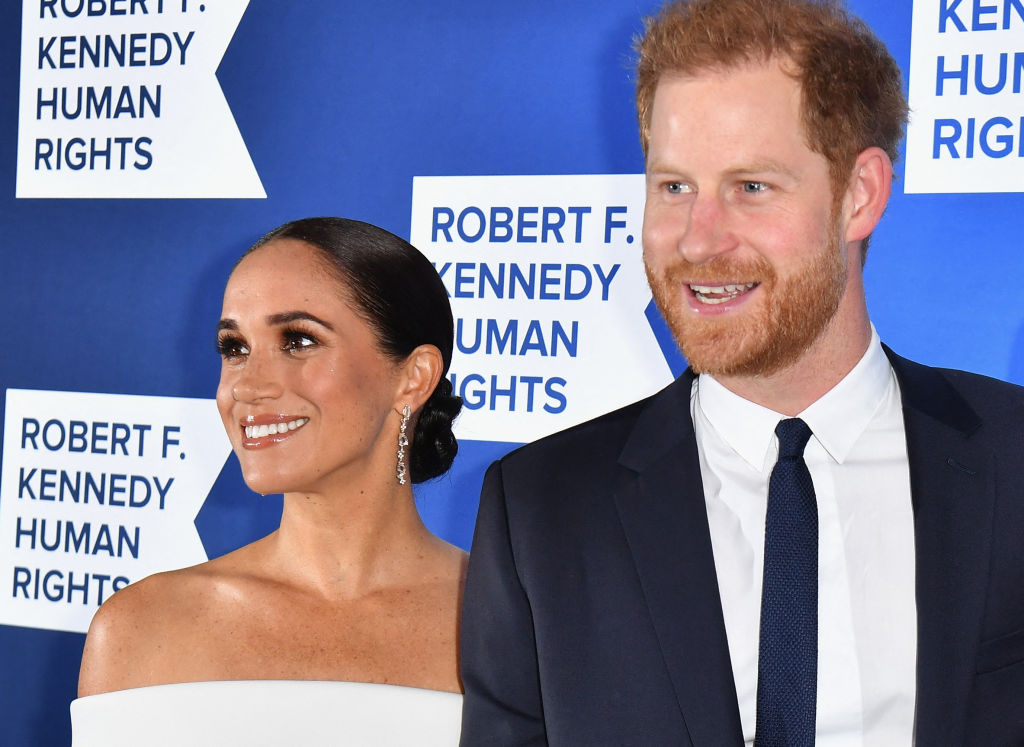I’ve enjoyed the recent BBC blockbuster Rogue Heroes, a drama that is mercifully free from the moralising that Auntie often inflicts on viewers. All the same, as I told the Daily Telegraph this week, one should take the Boys’ Own interpretation of the formation of the SAS in world war two with a pinch of salt. Eight out of ten for entertainment but five for historical accuracy.
The main problem with Rogue Heroes is that it is true to David Stirling’s version of how the SAS was born. But as I make clear in my recent biography of Stirling, The Phoney Major, based on two decades of research, he was a master at twisting the truth to suit his own ends. Sound familiar? Harry and Meghan are not the first to put their truth before the truth.
Stirling and Harry have much in common. Physically brave, but entitled and insecure, they grew up overshadowed by their big brother. In David’s case it was Bill, four years his senior, who on their death of their father in 1931 inherited land, wealth and the title of Laird of Keir. Bill read History at Cambridge and was the real intellect behind the formation of the SAS.
In 1941 he was working as the personal assistant to General Arthur Smith, the chief of staff at GHQ in Cairo. He and David came up with the idea for a small parachute unit to operate behind enemy lines in Libya, and Bill pitched it to his boss. Bill was always protective of David, the fourth of six children. He was a petulant and unhappy boy who grew into an intemperate and unhappy man.
David invented the story of his worming his way into GHQ to door-step the top brass in his semi-autobiographical The Phantom Major – a book that is the literary equivalent of Harry and Meghan’s documentary. Writing in The Spectator this week, Alexander Larman described the Netflix nasty as ‘grotesquely self-indulgent’, ‘deeply partisan’ and ‘seeking to take back control of the narrative’.
In going rogue, Prince Harry has shown himself to be just as envious, embittered and unhappy as Stirling
The same could be said of The Phantom Major, a nickname Stirling claimed was bestowed on him by the Germans. It wasn’t. His friend Randolph Churchill came up with the name in a puff piece he wrote for the Evening Standard in 1942.
Nonetheless The Phantom Major was published to great acclaim in 1958, and it turned Stirling into something of a celebrity. Within a year he was rubbing shoulders with the Queen at house parties and appearing on television programmes to explain his military genius.
Stirling had, however, first attempted to get his war memoir published in 1951 but without success; one publisher, John Murray, rejected it because it was ‘disappointing’ and lacked excitement. But in between that rejection and the publication of The Phantom Major a significant event occurred: Paddy Mayne was killed in a car crash.
Mayne was Stirling’s nemesis, a man who was his superior in intellect and action. A rugby international and qualified solicitor, Mayne had a work ethic that Stirling could only dream of. Stirling’s fellow officers in the Scots Guards in 1940 nicknamed him the ‘Giant Sloth’.
The major flaw in the BBC’s Rogue Heroes is the characterisation of Mayne. Recently his niece, Fiona Ferguson, criticised the way her uncle had been portrayed as little more than a ‘drunk Irishman’.
Mayne liked a drink (never on operations) but he was not the borderline psychopath depicted in Rogue Heroes. I know because I’ve interviewed scores of men who served under Mayne in the SAS. The man they described with reverence bears no resemblance to the one in Rogue Heroes.
But don’t blame the Beeb for, in the words of his niece, transforming him into ‘someone he wasn’t’. That process began with the publication of The Phantom Major. In 1954, the year before Mayne’s death, Stirling had described the Irishman as ‘affably aggressive’, and explained to an interviewer that when he recruited him to the SAS he was waiting for a posting ‘at an infantry base’.
But in The Phantom Major, Stirling claimed Mayne ‘had been under close detention for some weeks’ after beating up his commanding officer. It was one of many falsehoods in a book that embellished Stirling and diminished Mayne, turning the latter into a dark and brooding character with an animus against Catholics and anyone in authority. Stirling on the other hand, if one believes The Phantom Major, ‘became almost a legend to the men who served him. They felt he led a charmed life, that there was no trap from which he could not fight his way’.
Really? Contrary to the finale of Rogue Heroes, where Stirling is captured after a valiant shootout with the Germans, he was actually bagged without a shot being fired, having neglected to post any sentries while he and his men slept.
On his release from captivity in April 1945 Stirling returned to Britain in the expectation of resuming command of the SAS. Mayne made sure that didn’t happen. He regarded Stirling as sloppy and inept, which he was, and he didn’t want him anywhere near the SAS. In Stirling’s absence, Mayne had led the regiment superbly; he ended the war as one of Britain’s most decorated and respected soldiers. Stirling seethed with resentment and he settled his score in The Phantom Major.
Harry has now channelled his revenge into art form. But in going rogue he’s shown himself to be just as envious, embittered and unhappy as Stirling.
David Stirling: the Phoney Major by Gavin Mortimer is published by Constable








Comments